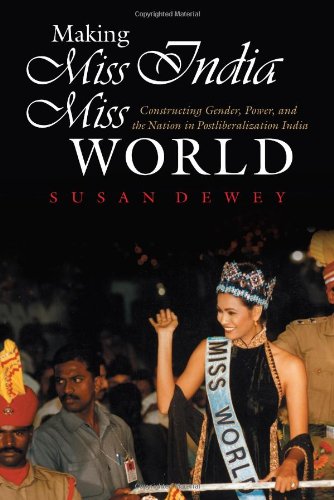

Most ebook files are in PDF format, so you can easily read them using various software such as Foxit Reader or directly on the Google Chrome browser.
Some ebook files are released by publishers in other formats such as .awz, .mobi, .epub, .fb2, etc. You may need to install specific software to read these formats on mobile/PC, such as Calibre.
Please read the tutorial at this link: https://ebookbell.com/faq
We offer FREE conversion to the popular formats you request; however, this may take some time. Therefore, right after payment, please email us, and we will try to provide the service as quickly as possible.
For some exceptional file formats or broken links (if any), please refrain from opening any disputes. Instead, email us first, and we will try to assist within a maximum of 6 hours.
EbookBell Team

4.8
54 reviewsFor almost half a century, the Miss India competition has been a prominent feature of Indian popular culture, influencing, over time, the conventional standard for female beauty. As India participates increasingly in a global economy, that standard is gradually being shaped by forces beyond the country's borders. Through the unexpected lens of the 2003 beauty pageant, Susan Dewey's Making Miss India Miss World examines what feminine beauty has come to mean in a country transformed by recent political, economic, and cultural developments.
Dewey offers readers an up-close view of the beauty pageant through her discussion of the contestants' intense training program, a process that involves extensive physical, emotional, and cultural transformations. Covering everything from proper table etiquette to preferred skin tone, the author reveals the exacting standards set by pageant officials and reflected in Indian society. Yet she also recognizes the empowerment these women are afforded by their status as beauty symbols in a culture increasingly shaped by the visual influence of national and international media.
Making Miss India Miss World constitutes an important cultural critique and an enlightening take on how macroeconomic change affects cultural identity at the individual level.